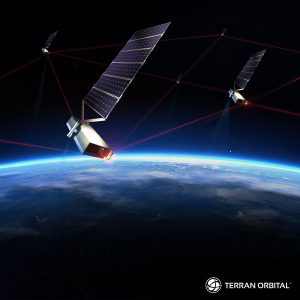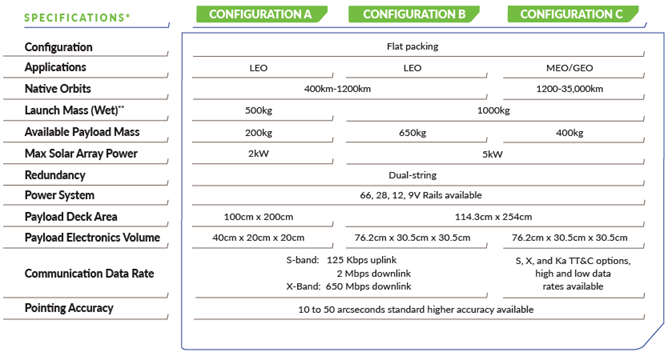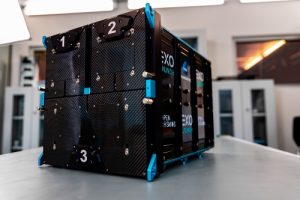The satellite manufacturer – based in Boca Raton, Florida – says a new power storage system has been designed to reduce weight and increase the power available to the payload. Specifically, there are now three configurable, configurations: A, B, and C. Each configuration comes standard with Optical Inter-Satellite Link (OISL) functionality and has a large, flat deck optimised for communication and RF payloads.
Configuration A is designed to be the “standard” model, while configuration B is the LEO flagship that provides additional power and payload mass. Finally – changing tack – configuration C swaps payload mass for additional redundancy and provides power upgrades ready for MEO and GEO applications.
The new Enterprise configurations are specified below (click to expand).
“Over a decade ago, Terran Orbital pioneered the creation of CubeSat standards, and today, it is revolutionizing manufacturing of satellite buses yet again,” said Marc Bell, Co-Founder, Chairman, and CEO of Terran Orbital.
“We are establishing benchmarks for satellite technology for the coming decade. Terran Orbital employs top-of-the-line automation and modern manufacturing processes to support the delivery of hundreds of satellites annually. From order to launch, in quantities from one to a constellation of one hundred, Terran Orbital is proud to accelerate the delivery of mission solutions.”
Seven satellite buses
The company had initially announced the Enterprise class back in September, as part of seven new bus classes, when it also announced it was expanding its satellite manufacturing capability by opening a new 60,000 square feet facility in Irvine, California.
The seven ITAR-compliant classes ranged from the largest, ‘Enterprise’, to the smallest platform, ‘Triumph’. Using common building blocks, said the company, they will allow for wet launch masses of 14 to 1000 kg.
As well as the Enterprise class, now expanded above, the announcement covered the following buses: Ambassador, Nebula, Excelsior, Voyager, Renegade, and the Triumph.
See also: Quub microsatellite company launches British subsidiary
 Electronics Weekly Electronics Design & Components Tech News
Electronics Weekly Electronics Design & Components Tech News





